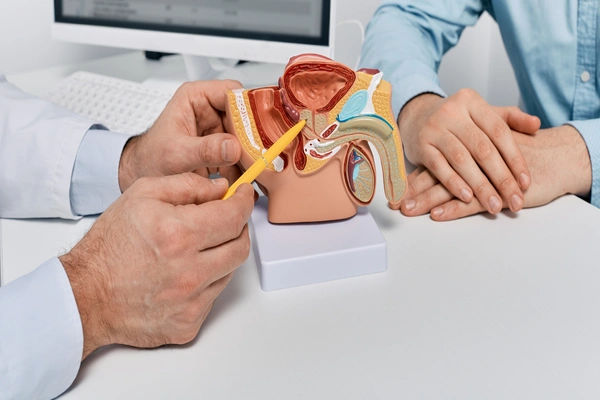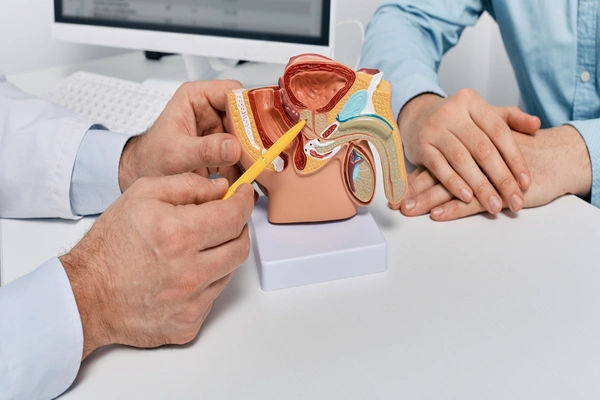- male
- 25 Years
- 14/08/2025
I've been noticing extra skin around my penis and sometimes there's a white substance forming around it. Is this something that might need surgery to fix or is there another way to handle it? I'm a bit worried about what's going on
More Urology Health Queries
View allI've noticed these small blisters on my penis and I'm not sure if I should see a dermatologist or a specialist who deals with sexual health. It's been going on for about 23 weeks now and I'm quite concerned about how serious this might be. Any advice on what I should do?
Yes visit Dermatologist for appropriate management
Answered by 1 Apollo Doctors
I've been wondering if masturbation has any connection to premature ejaculation. Like, does it cause it or make it worse? Also, how can I tell if I'm actually dealing with premature ejaculation? It would be great to get some clarity on this.
Masturbation itself doesn't cause premature ejaculation, but excessive or hurried habits may affect control. Premature ejaculation is typically defined as ejaculating within a minute of penetration or before the person wishes, and it often causes distress or relationship issues. If this happens frequently, it might be helpful to consult a healthcare provider.
Answered by 1 Apollo Doctors
I'm really interested in finding ways to increase both the duration and frequency of sex. Id love to have longer and more enjoyable sessions in one night. Everything's normal with my sex life right now, no major issues, but I'm curious if theres something easy or natural I can do to improve in these areas. Any advice or suggestions?
-To increase both the duration and frequency of sex, focus on communication, exploring different forms of intimacy, and experimenting with techniques like the "stop-start" method or practicing pelvic floor exercises. Maintaining overall health through reg
Answered by 1 Apollo Doctors
Disclaimer: Answers on Apollo 247 are not intended to replace your doctor advice. Always seek help of a professional doctor in case of an medical emergency or ailment.


.webp)



